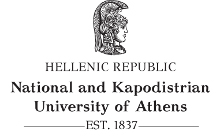EPIDEMIOLOGY
1st semester
Learning Objectives
After successfully completing the course, students are expected to:
- Interpret morbidity/mortality/incidence rates of various diseases and monitor their temporal trends.
- Distinguish between different epidemiological study designs: descriptive, non-interventional, and interventional, and describe their main characteristics.
- Estimate relative risk in exposure-outcome relationships.
- Select an appropriate research design based on the research question, ethical considerations, available sources, and infrastructure.
- Identify and adjust for possible confounding factors.
- Interpret the results of an epidemiological study.
- Conduct literature reviews using relevant international databases.
Course Content
The course introduces students to the concept, principles, and applications of epidemiological research. At the end of the course and its related practicals students will be acquainted with:
- Sources of epidemiological data
- Literature and data search in online databases
- Measures of disease frequency - Standardization of rates
- The concept of causation in Epidemiology and Clinical Medicine
- Descriptive epidemiology
- Prospective studies
- Case-control studies
- Introduction to systematic errors and confounding
- Principles of epidemiological interventions - Clinical trials
- Principles of systematic review and meta-analysis
- Basic principles of infectious disease epidemiology
- Outbreak investigation - Epidemiological surveillance
- Screening (secondary prevention)
